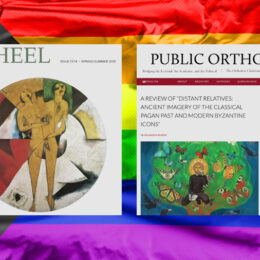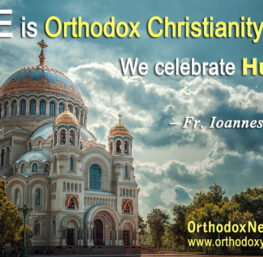Institute for Religion and Democracy Steve Rempe
The one million-member Orthodox Church in America (OCA) is examining a proposal to remove itself from both the World Council of Churches and the National Council of Churches. The proposal will be reviewed by the OCA All-American Council, which meets in Toronto July 17-22.
According to the position paper Orthodox Relations, “The most advisable course for the Orthodox Church in America would be to eventually withdraw from the NCC and the WCC.” Any withdrawal would be done in consultation with those Orthodox churches that remain members of the councils.
Among the reasons cited in the report for withdrawing from the church councils are the increasingly political agendas that they pursue. “The very politically-oriented theologies of many Protestant denominations have often threatened to derail the agenda of councils away from dialogue and unity, and towards political advocacy and activism,” says the report. “. . . [T]he ecumenical organizations in which we participate, in their theological and social views, are oriented towards policies which are not in harmony with Orthodox views.”
The document emphasizes that withdrawal from the church councils would not mean a retreat from developing ecumenical relations with other Christian bodies. “In the end, we have no option of truly ‘withdrawing’ from inter-Christian engagement,” says the proposal. “. . . To the contrary, the announcement of our withdrawal should be framed in the context of a defense of the proper and necessary ecumenical vision.”
The report delicately disputes claims by the NCC and WCC that the councils are the “preeminent” and indispensable expressions of the ecumenical movement. It points out that there are more Protestants and Pentecostals, both in the United States and internationally, outside the NCC and WCC than within those councils. Also noted is the fact that neither council can claim the Roman Catholic Church among its members. The proposal recommends that “ecumenical Christian relations should be sought with conservative Christian bodies,” and that other “ecumenical streams or contexts that hold theological promise” should be encouraged.
The Orthodox Church in America is an autocephalous (independent from patriarchal authority) body in the Russian Orthodox tradition.
In recent years, the Russian Orthodox Church, the largest member church in the World Council, has criticized both the WCC and some of its member bodies for supporting practices contrary to Orthodox teaching. In 2003, the Moscow Patriarchate cut ties with the Episcopal Church USA, in response to its consecration of an openly gay man as a bishop. And in June 2005, Russian Orthodox Patriarch Alexy II expressed concern about the influence exercised within the WCC by churches taking a “free interpretation” of Christian sexual morality.
At the 1998 World Council of Churches Assembly in Harare, Zimbabwe, a Russian Orthodox representative criticized some WCC member churches for “adopting Western liberal values and throwing out traditional Christian values, one after the other.” He warned, “If the structure of the WCC is not radically changed, other Orthodox churches will also leave the WCC.”
To address such complaints, the WCC established a Special Commission on Orthodox Participation in 1999. The special commission recommended some procedural changes, which the council has adopted, but it did not engage the substantive theological concerns that the Orthodox churches had raised. Obviously, the debate within Orthodoxy about its ecumenical stance remains open.
Should the proposed OCA resolution be adopted, the Orthodox Church in America would be the first Orthodox body to leave the WCC since the special commission report. The OCA is currently the only Orthodox church in North America that is a member of the World Council of Churches. (Many other Orthodox North American bodies are represented through patriarchs residing in their countries of origin.) It is one of eight Orthodox bodies in the National Council of Churches.




As long as it is over the increasing politicalization, Republican and Democratic, of Protestant denomination, I think it is an idea worth exploring and possible following through with. If it is a response to doctrinal issues such as acceptance of gay clergy or marriage, then I wouldn’t think very higly of a decision to withdraw from the groups. There are always going to be theological disputes. The response from Orthodox to the MCC joining the NCC I think was very appropriate: all denominations are viewed as somewhat heretical, so being heretical on the gay issues isn’t anything to be more concerned about than being heretical on other issues.
In fact it might be of less concern because I don’t know of any first millenium eccumenical council that delt with it specifically, but issues like the nature of Christ seem to be very important to the early church.
Does anyone know if the All-American Council has taken a vote on the subject yet?
Tony
Homesexuality is well documented by Saint Paul- 1st century. It dovetails real nice to the teachings of marriage, which does not condone sexual relationships outside of marriage. Since it was not a major theme in the early ecumenical councils, it cannot be assumed to be a minor issue at that time or now. For example, icons were not disputed in the early church but that does not minimize their importance. Sexual condunct impacts salvation as Saint Paul is very direct on that.